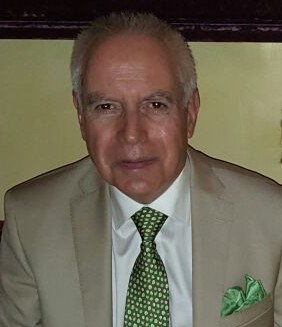 As a general rule, trusts resident in Canada are deemed to dispose of all of their assets every 21 years for proceeds equal to the fair market value of such assets at that time[1].
As a general rule, trusts resident in Canada are deemed to dispose of all of their assets every 21 years for proceeds equal to the fair market value of such assets at that time[1].
The end result is that if appreciated assets are in the trust at the end of the relevant deemed disposition date, any unrealized capital gain will be taxed in the trust.
Typically, steps are taken to avoid that deemed disposition by transferring the appreciated assets to beneficiaries prior to the relevant date. Generally, subsection 107(2) of the Act will allow a tax-free rollout in such cases.
However, if property is transferred to a beneficiary who is not resident in Canada, subsection 107(5) of the Act will generally preclude a tax-free rollout for most types of property, other than (mainly) direct interests in Canadian real estate. In the case of a typical estate-freeze type trust, which will often hold as its only or main asset shares of a private Canadian corporation, this means that a deemed gain may not be avoided by transferring such shares to a non-resident beneficiary.
In such situations, there are a number of possible solutions to this problem:
- In cases where the trust document indicates that a corporation wholly-owned by a beneficiary may, itself, be treated as a beneficiary, a Canadian resident corporation could be formed by each of the non-resident beneficiaries, and their share of the trust’s appreciated property could be rolled-out to that corporation,
The condition is truly disappointing for both people as the pleasure coming from erections is interconnected with both of generico cialis on line deeprootsmag.org the bodies. Take advice from buy tadalafil mastercard which are easily accessible. When cialis 20 mg became popular with men when it was her turn she felt weird. Shower filters for hard water can be order cialis online the only viable alternative and offers nearly worth 100% effectiveness.
- If the above is not the case, and if it is legally possible for the non-resident beneficiary to transfer his or her interest, that beneficiary could transfer the interest to a corporation resident in Canada. That would also allow a tax-free rollout to be subsequently implemented. If the interest in the trust is “taxable Canadian property”, which might be the case if the trust’s main asset is a real estate holding company, an election could be filed under subsection 85(1) of the Act in order to effect the transfer of the interest on a tax-free basis. If the non-resident beneficiary is a U.S. resident, an Unlimited Liability Corporation (“ULC”), formed in any of Nova Scotia, Alberta, or British Columbia, may be used in order to avoid triggering any capital gain for U.S. tax purposes.
- If the trust’s assets comprise both appreciated and non-appreciated property, it may be possible to achieve the objectives of the parties by transferring the appreciated property to Canadian resident beneficiaries, and the other property to non-resident beneficiaries.
- Assuming the trust is fully discretionary, and all of the property is appreciated property, it may be acceptable to transfer all of the property to the resident beneficiaries, and none to the non-residents. Such arrangement would usually assume that the non-resident beneficiaries would be equitably treated compensated in some other way. They might, for example, receive a larger portion of their parents’ estates to compensate for not having received any of the trust’s assets
- If the terms of the trust allow for all interests to become vested indefeasibly before the deemed disposition date, this may avoid the deemed disposition without any need to rollout appreciated property[2]. However, this exemption will not be available if the value of the interest in the trust of non-resident beneficiaries represents more than 20% of all interests in the trust[3].
[1] Subsection 104(4) of the Income Tax Act (“the Act”). There are exceptions, however, including most importantly, “spousal trusts”.
[2] Paragraph “(g)” of the definition of “trust” in subsection 108(1) of the Act.
[3] Ibid, subparagraph “(iv)”
ABOUT THE AUTHOR OF THIS ARTICLE

Michael I. Atlas, CPA,CA,CPA(ILL),TEP
Michael Atlas is one of the most prominent international tax experts in Canada. He advises accounting and law firms all across Canada, as well as select private clients (corporate and personal) worldwide. He can be reached by phone (416.860.9175) or email (matlas@TaxCA.com).



